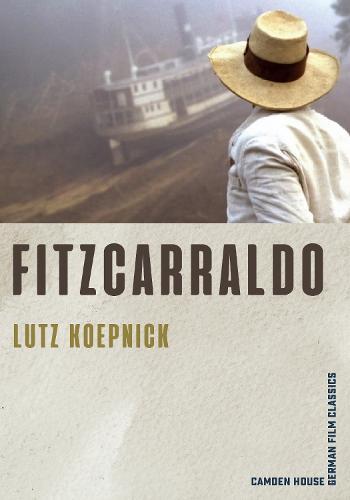Overview
When it was released in 1982, Werner Herzog's Fitzcarraldo was widely criticized for its demanding use of human and natural resources as well as its director's uncompromising aesthetic vision. Critics and scholars saw little difference between the film's protagonist's obsession with hauling a ship over a mountain in the Amazon and Herzog's own mode of cinematic production and storytelling. And yet Fitzcarraldo stands out as one of the defining moments of New German Cinema and, as the years pass, continues to raise new questions about the relation of film and society, art and nature, progress and subjectivity, the known and the unknown. This book revisits Herzog's taleof operatic entrepreneurialism from a decisively contemporary standpoint. It draws on recent writing on the Anthropocene to probe the relationship of art, civilization, and the natural world in Fitzcarraldo. It discusses the role of opera and music in Herzog's Amazon spectacle. And it brings into play the development of Herzog's own career as a filmmaker over the last few decades to offer a fresh look at this by-now classical contribution to twentieth-century German film art. Lutz Koepnick is Gertrude Conaway Vanderbilt Professor of German, Cinema and Media Arts at Vanderbilt University.
Full Product Details
Author: Lutz Koepnick (Royalty Account)
Publisher: Boydell & Brewer Ltd
Imprint: Camden House Inc
Volume: v. 1
Dimensions:
Width: 13.30cm
, Height: 0.70cm
, Length: 19.10cm
Weight: 0.186kg
ISBN: 9781640140363
ISBN 10: 1640140360
Pages: 92
Publication Date: 10 September 2019
Audience:
Professional and scholarly
,
Professional & Vocational
Format: Paperback
Publisher's Status: Active
Availability: In Print

This item will be ordered in for you from one of our suppliers. Upon receipt, we will promptly dispatch it out to you. For in store availability, please contact us.
Reviews
[A]fter considering the author's fresh perspectives on the intersections among music, philosophy, art, politics, ownership, and authorship, the reader will look forward to (re)watching Fitzcarraldo with eyes wide open not only to appreciate its cinematic feats but also, as Koepnick suggests, to reflect on the conditions and limits of happiness. --Jeanne Schueller MONATSHEFTE In the course of his sensitive and subtle investigation Koepnick brings into play numerous terms and concepts . . . in order to do justice to the complexity and relevance of Herzog's now-mythical film.--Joern Glasenapp MEDIENwissenschaft
In the course of his sensitive and subtle investigation Koepnick brings into play numerous terms and concepts . . . in order to do justice to the complexity and relevance of Herzog's now-mythical film. -- Joern Glasenapp * MEDIENwissenschaft * [A]fter considering the author's fresh perspectives on the intersections among music, philosophy, art, politics, ownership, and authorship, the reader will look forward to (re)watching Fitzcarraldo with eyes wide open not only to appreciate its cinematic feats but also, as Koepnick suggests, to reflect on the conditions and limits of happiness. -- Jeanne Schueller * MONATSHEFTE * Lutz Koepnick explores Fitzcarraldo by attempting to strip away the historical sediments of shared knowledge about the film and its auteur, Werner Herzog, and asks what the film itself shows and knows. . . . [T]he book takes an incisive look at the perspective that the film and filmmaker have both on Germanness and humanity's place in a global ecology. . . . [Koepnick] offers a fresh perspective on the film . . . . -- Noah Soltau * GERMAN STUDIES REVIEW *
Author Information
Lutz Koepnick is Gertrude Conaway Vanderbilt Professor of German, Cinema and Media Arts at Vanderbilt University.




